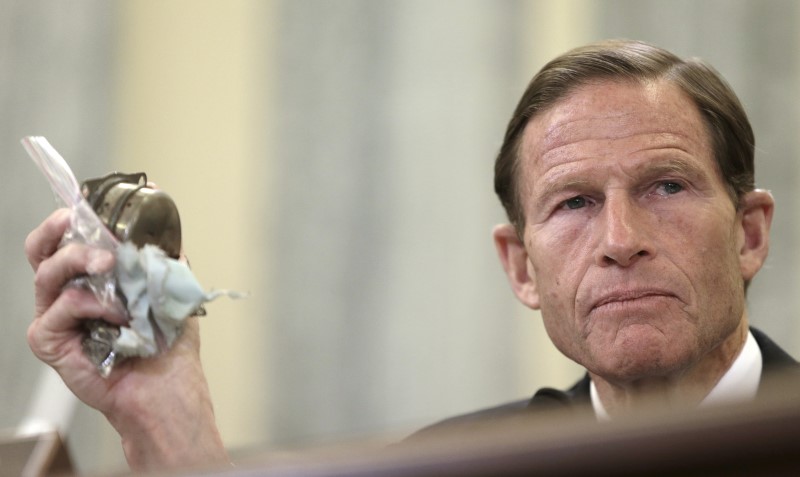By Richard Cowan
WASHINGTON (Reuters) - One day after a mass shooting in California that killed 14 people and wounded 21, Republicans and Democrats in the U.S. Senate jousted on Thursday over gun control but again failed to advance legislation addressing the violence.
Democrats tried to expand background checks to those purchasing weapons at gun shows and through intrastate Internet transactions. They also proposed closing a loophole allowing people on "terror watch lists" to buy guns and explosives.
Both efforts failed in the face of heavy Republican opposition.
Republicans said the government could mistakenly place innocent people on watch lists, denying them their constitutional rights to purchase guns. The influential National Rifle Association has also advanced that argument.
Texas Republican Senator John Cornyn failed to win an alternative putting gun sales on hold for 72 hours for people on watch lists. Critics have said such background checks could take longer to complete.
The FBI is trying to determine whether a couple suspected of the shootings at a workplace in Southern California on Wednesday had links to Islamic militant groups.
In a news conference before the votes, Democratic Senator Richard Blumenthal said: "Congress is complicit in these mass murders when it fails to act."
Blumenthal's home state of Connecticut was the scene of a mass shooting three years ago when a 20-year-old gunman entered an elementary school and killed 20 children and six employees.
After that tragedy, gun control legislation appeared to gain traction, only to fail in 2013 following an emotional Senate debate.
With the latest mass shootings in Paris, as well as in Colorado and California fresh in the public's mind, Democrats argued sentiment was again turning in their favor on gun control.
"I think we are ... reaching a tipping point," New York Senator Charles Schumer said, adding that mass shootings "week after week" were "arousing the American conscience."
But given Thursday's Senate votes and recent public opinion polls, it is not apparent the United States has reached a "tipping point" in favor of stricter gun laws.
A Washington Post/ABC News poll last month found 82 percent thought gun violence was a very serious or somewhat serious problem. But opinion split almost evenly over whether enacting new laws to reduce gun violence or protecting the right to own guns was more important.
The poll also found that 63 percent blamed mass shootings on mental health problems, while 23 percent cited inadequate gun control.
